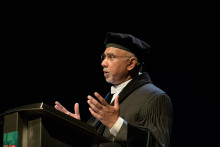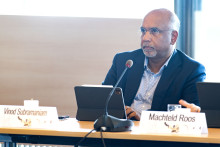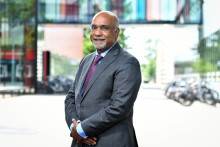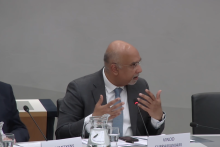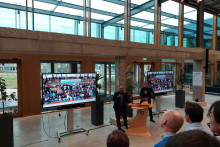'The results of the Dutch national elections were announced last night, and we have heard and seen a lot of reactions from our community. These election results likely imply political changes that do not match how many people in our community view the world. As a university, we stand for an open, diverse and inclusive community, looking outwards. We are concerned about the effects of these results on higher education in general, and about the feelings within our community', Subramaniam opens his message.
He expressed that the Executive Board noticed that the results were affecting many people in the UT community emotionally. 'Especially our international community. They may feel less welcome, a feeling already fuelled by the current internationalisation debate. A recent survey at U-Today confirmed that international staff and students felt less at home due to this discussion.'
Pain
Subramaniam, born in India, also discusses his own background in the letter. 'It is a feeling that I recognise myself, and it saddens me to note that the same applies to others. I am a new Dutchman, only eight years now. Despite the support I feel from fellow university board members - I am the only one with a non-western migration background - it sometimes feels lonely. And at times like this, even more so. It is my personal reality, one that I have to give a place to, however complex it may be. This goes for many. Above all, let us be there for each other as members of the UT community at this time.'
The executive board president stressed that the UT 'is and will remain an open and inclusive community, where everyone is welcome and equal. This is a value we will not compromise on. Together, we make a stand against exclusion and ensure that the societal and political debate does not distance us from each other.'
Difficult to understand
Subramaniam's letter also anticipates implications for the UT's core business. 'We see several parties doing well that do not necessarily share our convictions about the value of education and science to our society. Some propose far-reaching cuts in funding for education, science and innovation. Such choices are difficult to understand from a societal perspective.'
The president concluded hopefully: 'It is important not to let ourselves be paralysed by this uncertain political perspective, but rather to continue to - together - powerfully increase our societal value as a knowledge institution and show it with pride.'


